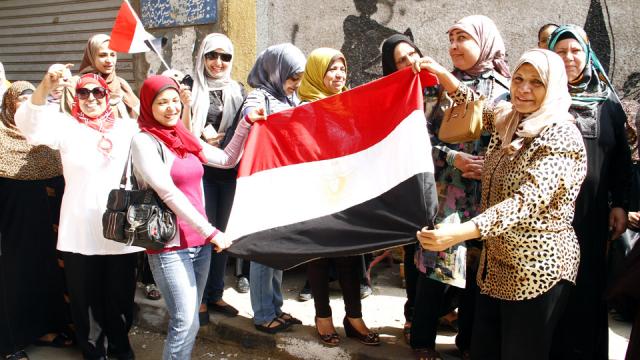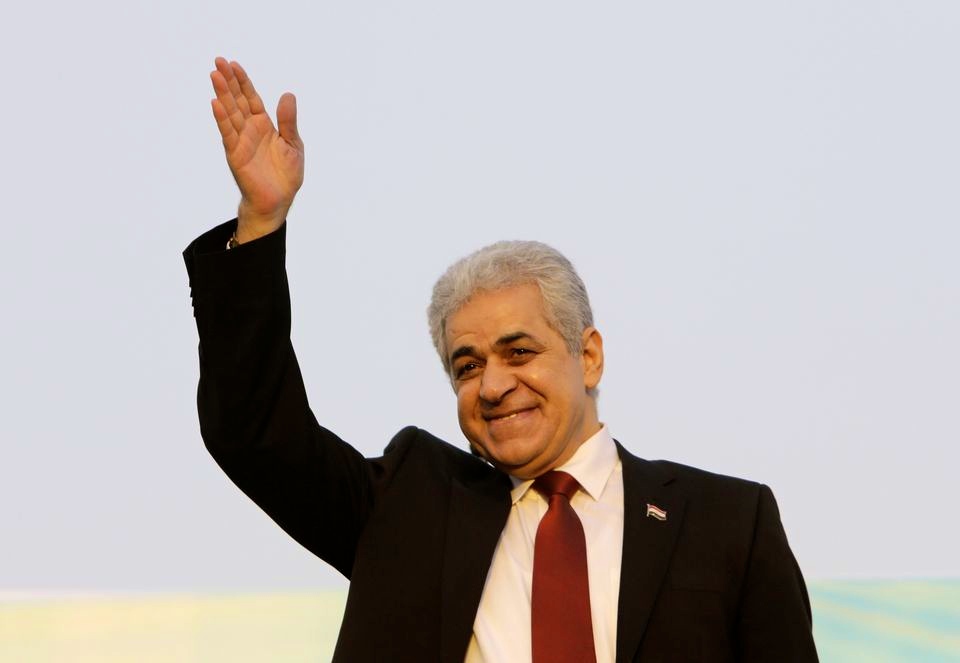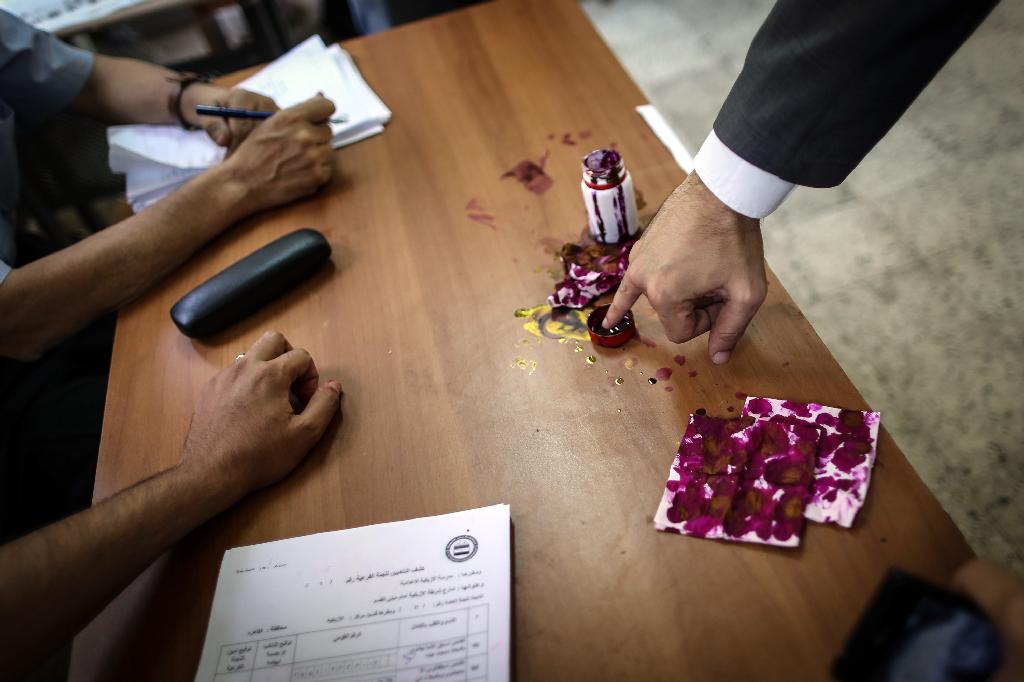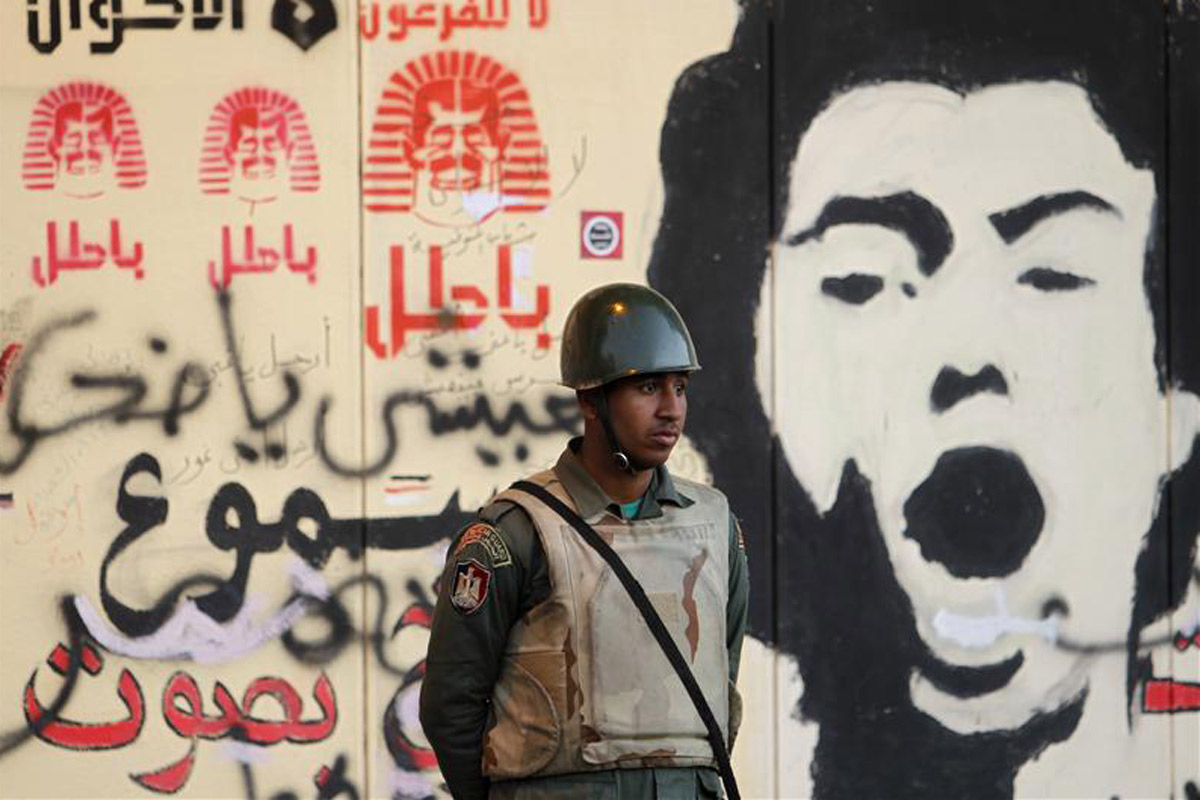
At a Cairo plaza capable of fitting thousands of supporters, Hamdeen Sabahi was due to arrive. Quickly, as word spread that the presidential candidate was about to come out, the area filled nearly completely. The people were waiting for Sabahi to give his last words Friday on the campaign trail.
When he finally came out, the crowd erupted in cheers as fireworks and balloons shot up into the air. Some people carried Sabahi’s picture and held up placards, one of which promoted solar power as a benefit to Egypt much the way oil benefited Gulf countries – a nod to Sabahi’s stance toward economic and environmentally sustainable ideas that provided new shape to the country's elections.
"Why Sabahi?" Nabeel El Hany, a local resident of the area, said at the rally. "Because he is one of us.”
El Hany, a self-employed worker in his 40s, said he identifies with Sabahi because the candidate “lived a similar life experience” to him. Sabahi's message of eradicating poverty, corruption and discrimination had touched El Hany especially.
Sabahi, who wore a dark blue suit, sat quietly on stage alongside Alaa Al Aswany, the internationally acclaimed Egyptian author, and a small group of artists, poets and public figures who stood by in support. The battle for Egypt’s top position has been an uphill one for Sabahi, running against former military leader Abdel Fattah el Sisi, whom many already consider the de facto victor.
Friday was the last day on which both campaigns were allowed to address the people, followed by an “election silence” until election day on Monday and Tuesday. Occupy.com spoke with Sabahi’s campaign manager, Hossam Moanes, about the candidate's final statements before Election Day.
"We are asking people to go out and vote,” said Moanes. "We are calling on the revolutionary youth who are considering a boycott to think again and support the candidate that was amongst them in 25th of January [2011] and 30th of June [2013]," he added.
Already there is a spirit of electoral boycott in the air, as many call the polling a mere formality before el Sisi obtains official control. Among those protesting the election are former presidential candidates and political groups that have objected to the lack of transparency and democracy as el Sisi’s cult of personality overtakes the country.
The influential April 6 Movement and the Revolutionary Socialists are also boycotting the election, which they view as a “stage play” by el Sisi and the military to maintain power. Many plan to void their votes out of fears of election fraud.
"We accept and are respectful of people's choice, whatever it may be, as long as the elections are fair," Moanes said.
In the run-up to elections in recent weeks, el Sisi dominated in terms of promotional material and street appeal. But a poll released Thursday by the Pew Research Center found that just over half of Egyptians approved of the former army chief – and 43 percent opposed the army-led overthrow of former President and Muslim Brotherhood member Mohammed Morsi.
The Brotherhood has seen some 20,000 of its members jailed since el Sisi’s military takeover last summer, and more than 1,000 killed in a campaign of intimidation to quell the group's influence. Speaking about Brotherhood arrests, Sabahi promised to “let prison for criminals not for thought prisoners," as stated on one of his campaign posters.
Sabahi's message to Egyptians on Friday was full of hope, despite the overwhelming sense that el Sisi would march to easy victory.
"This campaign will become a foundation for a real democratic future," said Moaness. "We will graduate leaders who will one day run for the presidency, who practiced politics in [the] right way from a young age. They have big hopes the elections will be fair."
If it is not – a scenario predicted by the many Egyptians who have chosen to boycott – then "we are continuing on the path to the parliament and local elections across the country," added Moaness, and "we will build a large, civil democratic coalition to enter the [next] elections."
Sabahi's tone and presence in the campaign has already had a positive impact, communicating a message of ending religious and gender-based discrimination and enlarging press freedoms. "If there is discrimination against Copts or women, you can hold me personally responsible,” Sabahi said Friday to loud cheers.
3 WAYS TO SHOW YOUR SUPPORT
- Log in to post comments














